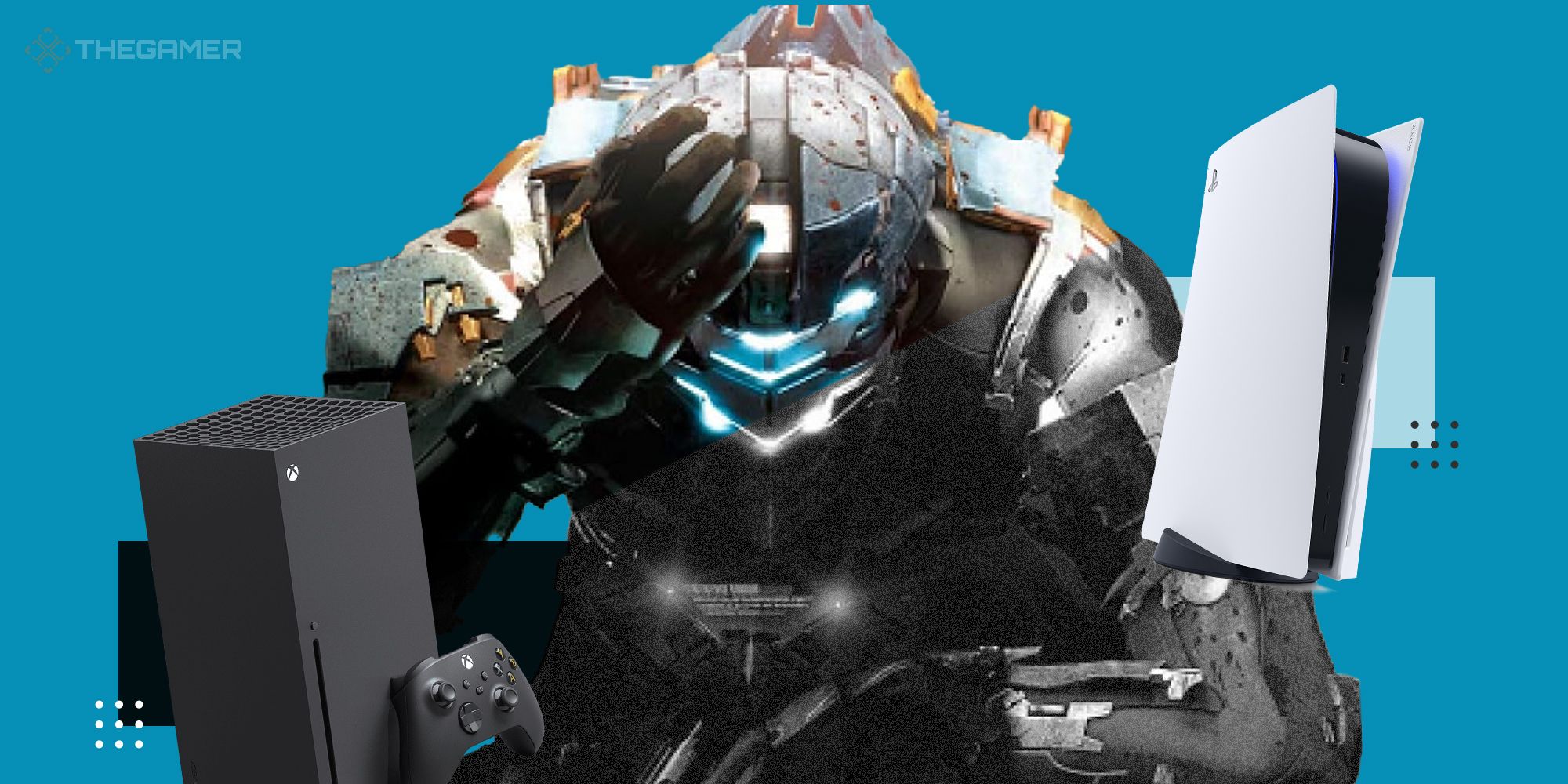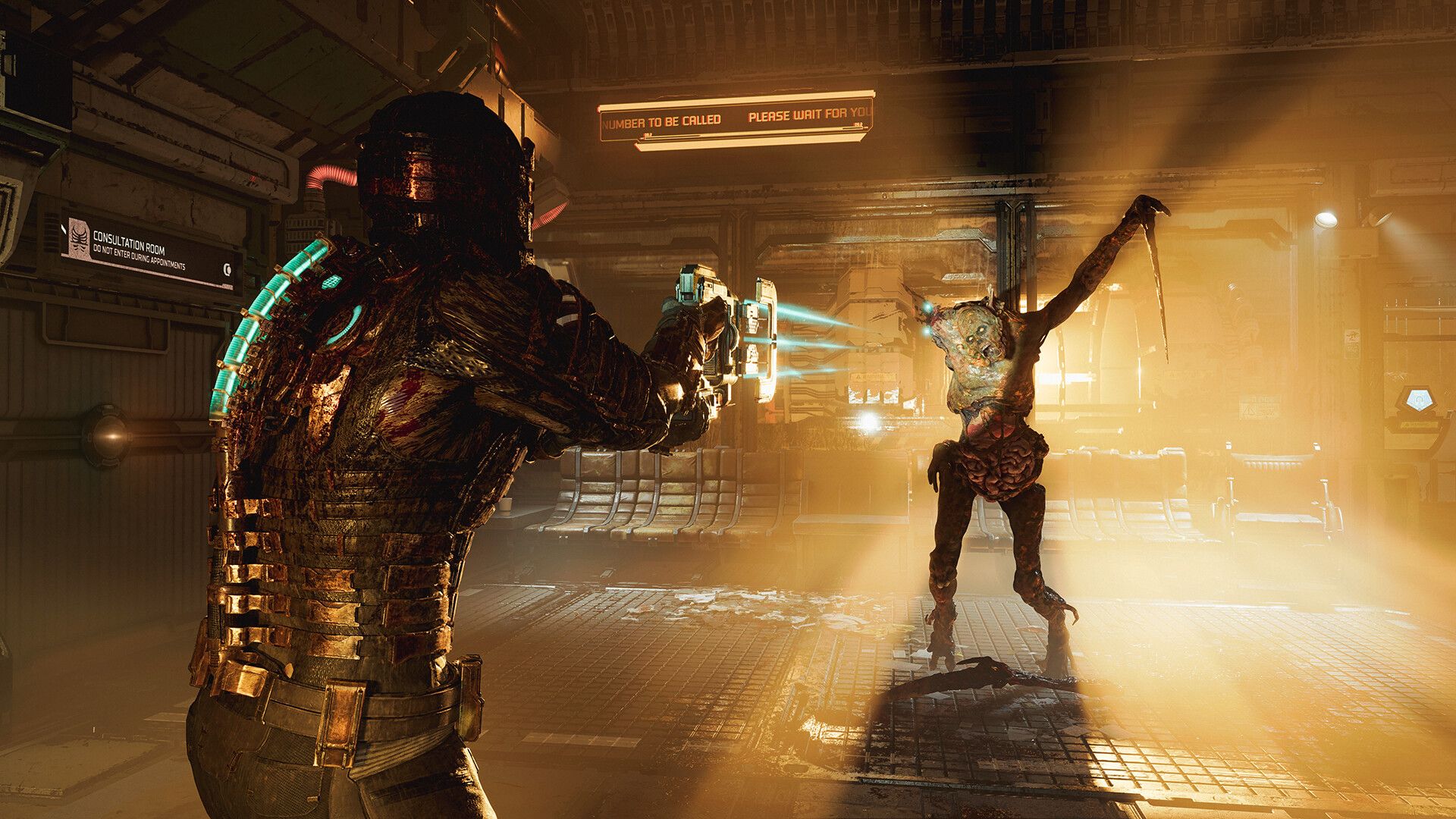EA and Motive’s Dead Space remake is a resounding success. Critics (including myself) showered it with praise for bringing back the survival horror classic with equal parts authenticity and ambition. While much of the level design and combat mechanics remain identical, the entire package has been imbued with a modern sheen and tighter execution that makes it feel like not a day has passed since 2008. Few games are able to achieve this sort of thing when it comes to being remade and not be subject to archaic shortcomings, but Isaac Clarke and his trusty plasma cutter more than deliver. Now we wait for the sequels to resurface.
They will have a much harder time in a remake’s spotlight, primarily because they tend to forget the original game’s greatest strengths to opt for something far more bombastic. EA has and will always be a ‘bigger is better’ company that ups the ante whenever possible, believing it will naturally result in bigger audiences and bigger profits. It’s a misguided belief, and our continued love for the first Dead Space is proof of that. The sequels are rarely talked about in the same breath, and if they are, it’s fans wishing they were more like what came before. Isaac Clarke becomes a grumpy, hardened space marine who finds himself involved in increasingly silly schemes as necromorphs slowly take over the galaxy.
Don’t get me wrong, Dead Space 2 is a great game. It’s also a significantly different one than its predecessor. Isaac Clarke isn’t an everyday engineer who finds himself in a bad situation he needs to escape, but a man at the centre of the universe with plot armour dense enough to withstand an entire moon’s worth of necromorphs. Of course the gore and scares are still present, with a particular focus on jump scares, but a larger setting and complicated cast of characters mean the minimalism of the USG Ishimura is soon forgotten. Heck, there’s a whole chapter where you revisit the previous game’s setting, a rollercoaster ride of grim reminders that I’d rather be stuck on this thing than anywhere else.
After the opening cutscene it’s a balls-to-the-wall escape from a mental ward as the place begins to fall apart, doctors and patients alike evolving into necromorphs while Isaac tries desperately to escape. It’s a great game with so many excellent moments, yet so few of them come to mind after all this time. The one I do remember has aged terribly too, as Isaac trundles through a recently abandoned nursery where a bunch of babies and children have transformed into alien monsters. On the surface this is rather creepy, although it falls into hilarity as campy imagery tries in vain to double down on the nursery rhyme motif of the first game. The killing children thing is kinda tasteless too.
Isaac jumps from massive level to massive level, taking down new forms of infected while taking calls with new characters that help move the narrative along. The Marker is bigger. The necromorphs are scarier. Isaac’s girlfriend is alive. A long hard look was taken at the first game’s success and all the wrong lessons were learned from it. Turning Isaac into a generic hero was the first mistake made with this sequel, and a desire to heighten its audience to compete with other shooter blockbusters of the day.
As a consequence, Dead Space had to alter its fundamentals, swapping boiling pot scares for overblown action, because upping the stakes was seemingly the only way to make a sequel like this possible back then. Given how much inspiration it takes from Resident Evil, it’s fun to look at how the trajectory of both properties mirror one another across the console generations they occupied. They each wanted to be bigger and better, believing the future of survival horror was one of excess, instead of subtlety. This misguidance resulted in a shared downfall, their weaker sequels viewed as darker times that could have been so much more.
Remakes of the two sequels feel inevitable, even more so if this first outing is a big success. EA and Motive have done much of the legwork in regard to laying the foundations, with the remake not only expanding on the existing universe and retrofitting future lore and events, it also seems far more interested in making Isaac into a relatable and grounded hero. The jury is still out on whether future remakes will make minimal changes once again, but I feel like they’ve had to in order to stand the test of time. Bring them on, but please do them right.


